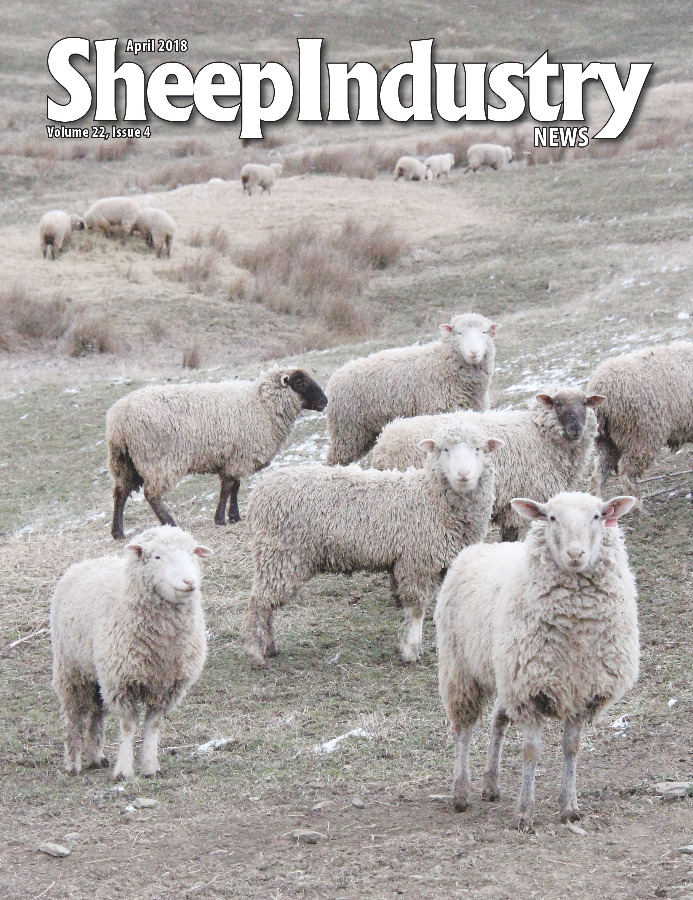Sheep Industry Goes to D.C., Shares Concerns with Leaders
CHASE ADAMS
ASI Senior Policy and Information Director
With negotiations on the Farm Bill and appropriations for fiscal year 2019 well underway, ASI members took to Washington, D.C., in early March to visit with the federal agencies they work with so frequently and express their policy priorities to Congress.
In keeping with last year’s trend of record attendance, turnout was again strong as sheep producers from across the country overcame some challenging weather and travel delays to make the trip. In the end, some 60 producers from more than 15 states attended and took away a sense of accomplishment that they had made their voices heard after three days packed with meetings.
The formal meeting began on Tuesday, March 6, with back-to-back meetings with agency speakers representing a broad array of program areas across the U.S. Department of Agriculture and the U.S. Department of Interior. These are the agencies that producers work with every day, and the chance to exchange ideas and discuss the challenges from both sides was tremendously valuable. The morning started with a robust briefing on the priorities of the sheep industry from Jim Richards, who leads ASI’s government affairs efforts.
USDA Wildlife Services spoke on their continued efforts to ensure the sheep industry has access to the tools and methods it needs for safe and effective predator control. The industry expressed its appreciation for the agency’s work to get the M-44 sodium cyanide device back in the field with new procedures that will ensure the device is effective while also safeguarding the public. Sheep producers engaged in a great discussion to make sure that would continue to be the case going forward, and even participated in one-on-one state delegation meetings with Wildlife Services personnel throughout the morning.
Continuing with USDA, producers heard from the Agricultural Marketing Service and the Animal and Plant Health Inspection Service. Mandatory Price Reporting and the Scrapie Eradication Program were top of mind throughout the discussions. Members took the opportunity to again remind APHIS of the importance of the scrapie program and the safety concerns around metal scrapie ear tags, renewing the request that plastic tags be made available for both practical and shearer safety concerns.
The remainder of the morning and into the afternoon focused on land use issues with representatives from Fish, Wildlife and Parks, the Bureau of Land Management and the U.S. Forest Service. Grazing allotment permit renewals and interactions between bighorn and domestic sheep took center stage as new science has emerged that questions further the federal decisions that shut down sheep ranches across the western United States.
In addition to meetings with these department and program leads, ASI was also able to meet with both Secretary of Agriculture Sonny Perdue and Secretary of the Interior Ryan Zinke to once again talk about the sheep industry and highlight a handful of areas where quick action could turn around years of unintended consequences for the livestock sector. These meetings provided a tremendous opportunity to visit with leaders about key priorities for the sheep industry – such as support for agriculture research through the U.S. Sheep Experiment Station and multiple use on public lands – as they look to carry out the priorities of a new administration.
The rest of the trip was dedicated to state meetings with each delegation’s senators and representatives. Top of mind for the Farm Bill is the need for a robust risk management program through the Wool Marketing Assistance Loan and Loan Deficiency Payment Program and support for the Food and Drug Administration’s Minor Use Animal Drug Program.
While annual appropriations requests focused on fully funding the USDA/APHIS Wildlife Services predator management program, requiring the use of sound and accepted science when making decisions based on the mere potential of domestic sheep and bighorn sheep conflicts and expediting alternative allotments where conflict truly is present, and continued support for the U.S. Sheep Experiment Station’s critical work in animal disease and range management. Other issues focused on ensuring Mandatory Price Reporting works to provide sheep producers transparency in the markets, ensuring a fair and efficient guest worker program through support for Chairman Goodlatte’s Ag Act, ongoing federal engagement in the scrapie eradication program and support for Foreign Agricultural Service’s Foreign Market Development, Market Access Program and Quality Samples Programs.
Wrapping up a successful legislative conference, ASI members met with more than 100 members of Congress, representing a diverse and bi-partisan constituency.


